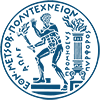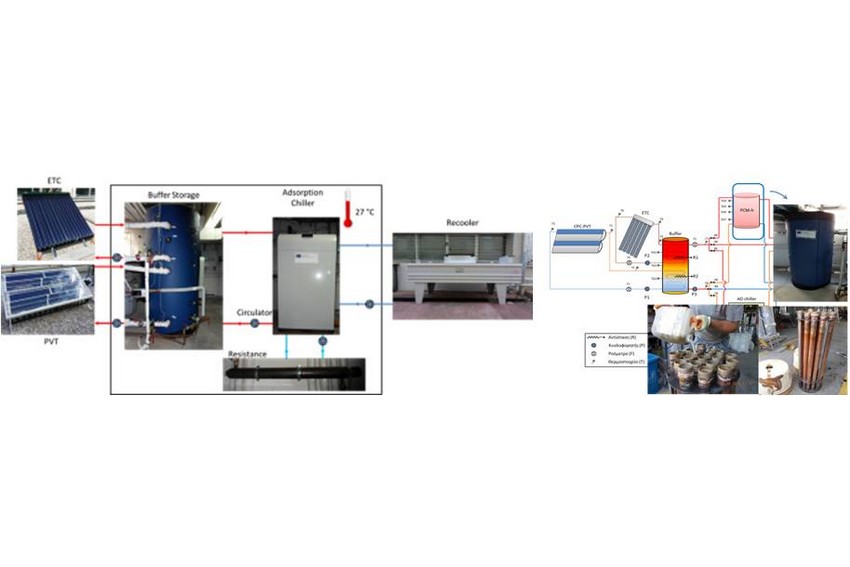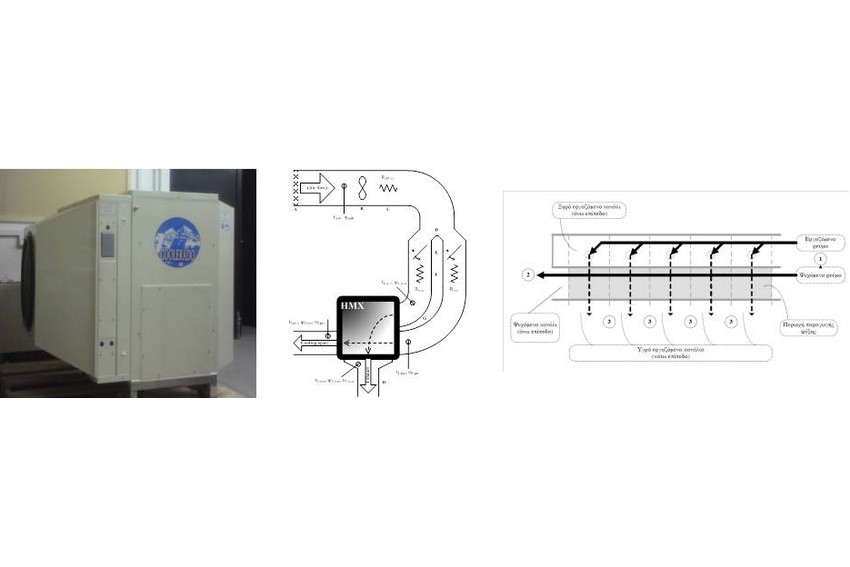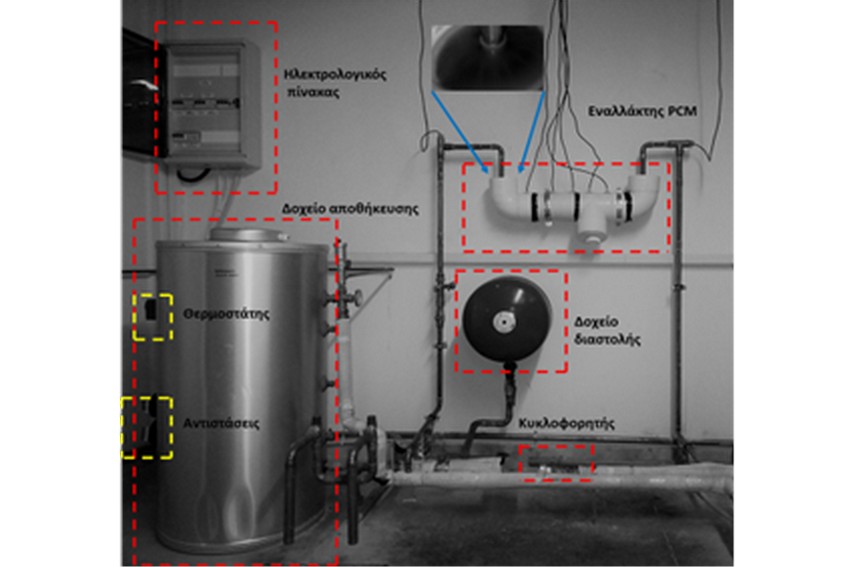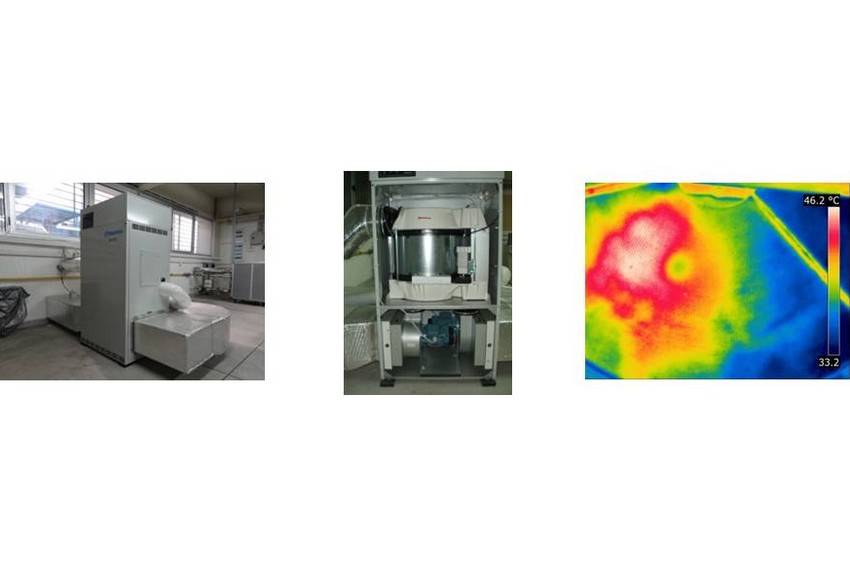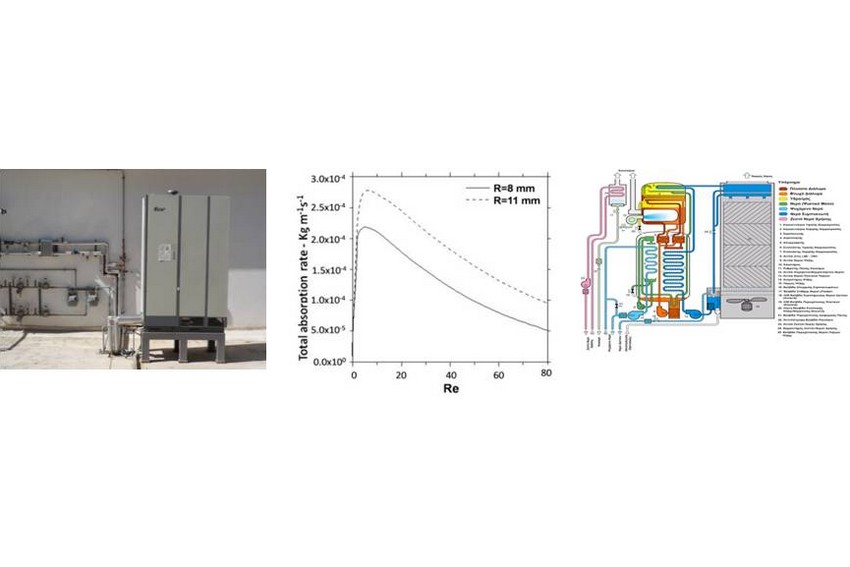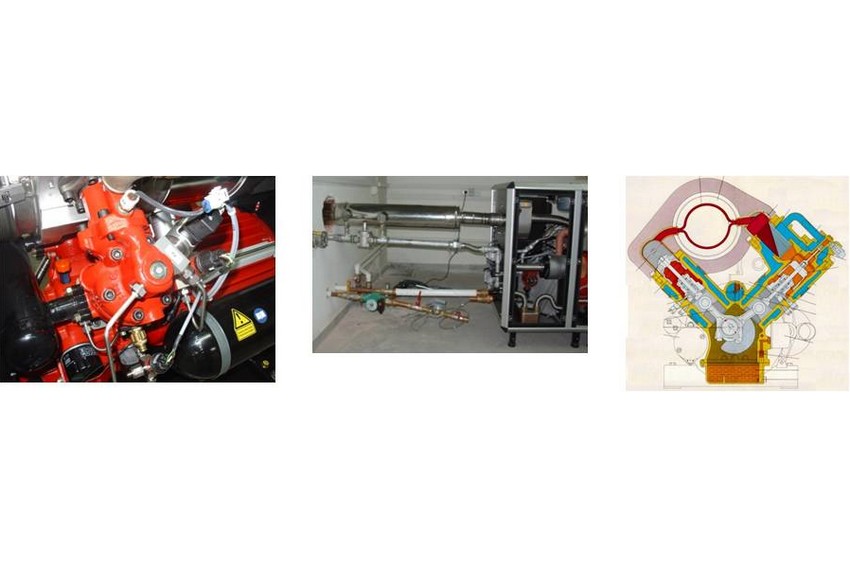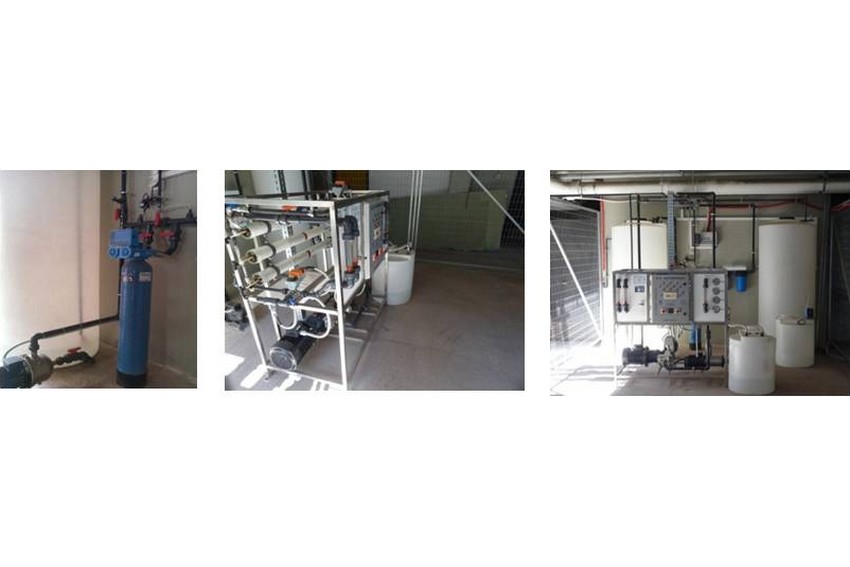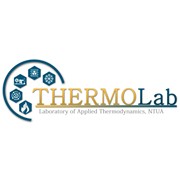
Identity
Establishment details:
Laboratory of Applied Thermodynamics and Cooling Technology & Refrigerated Vehicles: OGG issue 3304/2022
Laboratory of Applied Thermodynamics: OGG issue 32/1962
Laboratory of Cooling Technology & Refrigerated Vehicles: OGG issue 245/22-10-2001
Head of Laboratory:
Koronaki Irene
Professor
School of Mechanical Engineering
Thermal Engineering Section
Email: koronaki@central.ntua.gr
Laboratory Supervisor:
Georgios Antonakos (Laboratory Teaching Staff)
Email: gantonak@central.ntua.gr
ATP Laboratory Supervisor:
Konstantinos Chatzidakis
Email: atplaboratoryntua@gmail.com
Contact info:
Tel: 210 772 3672 / 1581 / 2380 (Laboratory)
Tel: 210 772 3742 / 3676 (ATP Units)
Website:
thermolab.mech.ntua.gr
The Laboratory: Brief Historical Overview
The Laboratory of Applied Thermodynamics is among the oldest laboratories established in both the School of Mechanical Engineering and the National Technical University of Athens. It was founded by Professor Al. Trypanis who lectured on Thermodynamics in the Higher School of Mechanical & Electrical Engineering. Professor Dimitrios Kouremenos, who succeeded him as the Chair of Thermodynamics, further supported research and tuition in Thermodynamics of Pure Substances & Mixtures, Internal Combustion Engines, Refrigeration Systems and Aircraft Engines. More recently the laboratory produced considerable scientific work under the guidance of Professor Emmanouil Rogdakis with Phd theses and scientific publications covering the subjects aforementioned. Nowadays the scientific and educational work of the laboratory continues under the guidance of Professor Irene Koronaki, who succeeded Professor Rogdakis in 2022 as the Head of the newly established Laboratory of Applied Thermodynamics and Cooling Technology & Refrigerated Vehicles.
The laboratory personnel also includes two members of Laboratory Teaching Staff, Dr Neofytos Komninos and Dr Georgios Antonakos as well as three administrative employees, Dr Konstantinos Hatzidakis, Ms Elissavet Antoniadou and Ms Alexandra Nasopoulou. The laboratory is further supported by scientific associates and PhD candidates.
Laboratory Equipment & Infrastructure
On NTUA’s Zographou Campus, in the School of Mechanical Engineering complex, the Laboratory of Applied Thermodynamics and Cooling Technology & Refrigerated Vehicles houses and extends its educational and research activities. At present, the laboratory owns two nationally accredited ATP Control Units on Zographou Campus and the Lavrion Technological and Cultural Park. In addition, the laboratory utilizes a computer room where simulations of novel energy system operation take place along with recording measurements from the following experimental installations:
- absorption cooling system: installation of commercial absorption engine equipped with measurement system used for student training and research purposes
- open evaporative cooling system with desiccant wheel: electronically-controlled unit used to study the operating parameters of this new technology and test modifications for increased efficiency
- Stirling cogeneration engine: this integrated system is used to demonstrate the benefits of small scale cogeneration in both environmental and economic terms
- evaporative cooling installations with liquid desiccant materials: experimental unit, fully equipped with measuring systems, with parameterization potential, to optimize this novel technology so as to become a viable alternative to conventional air conditioning
- solar cooling system with solar cogeneration: experimental unit with integrated PVT/adsorption cooling system to regenerate the adsorbent of the chiller
- thermal energy storage installation with PCM and nanofluids
- sea water desalination system: considering water scarcity and drought faced by many regions in Greece, desalination of salt water many provide a viable solution to the problem. The laboratory operates a desalination system, currently driven by electrical power, and with the purpose of integrating renewable energy sources.
The Laboratory of Applied Thermodynamics and Cooling Technology & Refrigerated Vehicles is fully equipped with portable measurement and verification devices for energy efficiency evaluation. In particular, the Laboratory owns:
- a thermal-imaging camera to detect heat loss through building shells and structures.
- a refrigerant leak detector to easily detect and repair leakage in refrigeration systems.
- an exhaust gas analyzer to define gas constitution emitted from fossil fuel combustion systems and further evaluate combustion efficiency and environmental performance.
- a gas flow analyzer to measure soot in exhaust gases produced by the combustion of solid and liquid fuels.
- an electrical power meter to measure power consumption and evaluate the performance of the building energy network under study (reactive power, power factor etc.).
- a moisture meter to measure dry bulb air temperature and relative humidity in spaces under evaluation.
- thermostatic test chambers of specific operational standards to evaluate and certify air conditioners in accordance with ISO-5151.
Research Projects – Provision of Services
The Laboratory of Applied Thermodynamics and Cooling Technology & Refrigerated Vehicles has successfully completed and/or is currently working on the following indicative list of projects:
- INNOMED: Boosting Innovative Solar Energy Technologies and Applications in Mediterranean Countries Education (01/2023-12/2025) / ERASMUS+
- Technical Support and Services to Third Parties on Industrial Refrigeration and Equipment Efficiency – Lavrion Unit (03/2022-03/2024)
- SolBio-Rev: Solar Biomass Reversible energy system for covering a large share of energy needs in buildings (05/2019 – 04/2023), http://www.solbiorev.eu/ Call: H2020-Lc –SC3-2018-2019-2020, Topic: LC –SC3-RES-4-2018. In collaboration with the Laboratory of Steam Boilers and Thermal Plants (Scientific Responsibles)
- «Energy Efficiency Measures and Pilot Applications of RES in NTUA’s ANYM Building» (Project Nr ΟΠΣ 5089275) / Operational Programme “Transportation Infrastructure, Environment and Sustainable Development” NSRF 2014-2020.
- Energy System Evaluation (09/2018-08/2020): Measurements, energy assessment and design optimization for refrigeration systems.
- Heating & Cooling System Assessment (05/2018-07/2018) HEPTAPOLIS GREEN ENERGY SOLUTIONS LTD: Measurements, energy assessment and design optimization for refrigeration system by Heptapolis.
- NRG4Cast: Energy Forecasting (12/2012-11/2015) / FP7-STREP: Research project within the framework of which a smart meter grid was installed on the entire Zographou Campus for recording and monitoring active and reactive power.
- High-temperature and increased efficiency solar dish concentrators (02/2014-06/2015) / ΠΑΒΕΤ 2013: http://www.solecon.gr/el/project-team.html
- REAL-SKILLS-EUROPE: Refrigerant Emissions and Leakage Skills for Europe (10/2009-09/2011) / Lifelong Learning Programme (LLP) – Training for Engineers and Refrigeration Technicians.
- Energy Efficient Building Design for Piraeus Police Headquarters, Public-Private Partnership, 2009, BIOTER, phase A’.
- Energy Performance Evaluation of Green Roof at the Building of the Ministry of Finance one year after establishment by means of thermal-imaging camera and simulation models. (Contract awarded by the Ministry of Finance in 2009)
- Energy Performance Evaluation of Green Roof at the Building of the Ministry of Finance three months after establishment by means of thermal-imaging camera and simulation models. (Contract awarded by the Ministry of Finance in 2008)
Education
Undergraduate Courses
- Applied Thermodynamics of Pure Substances (Schools of Mechanical Engineering, Naval Architecture & Marine Engineering, Electrical & Computer Engineering)
- Applied Thermodynamics of Mixtures (School of Mechanical Engineering)
- Heat Transfer (School of Naval Architecture & Marine Engineering)
- Thermodynamics Software (School of Mechanical Engineering)
- Industrial Refrigeration Systems (School of Mechanical Engineering)
Postgraduate Courses
- Thermodynamics and Heat Transfer
- Energy Management in Buildings – Energy Systems
- Clean Technologies
